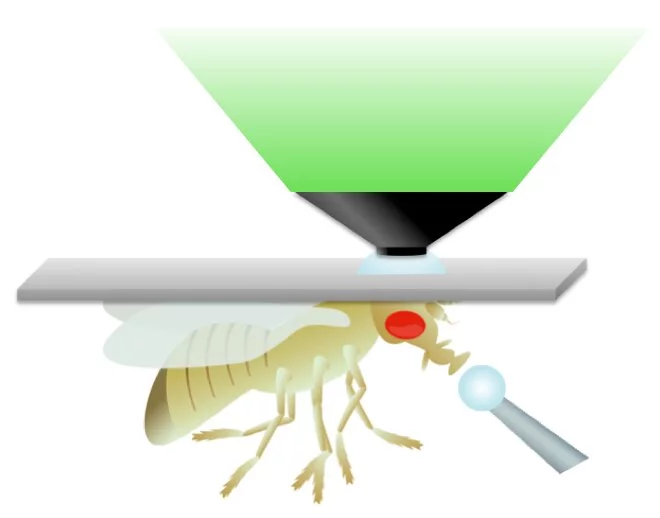It is well known that consuming food and drink high in sugar is not great for us, but scientists are continuing to unravel the intricacies of how the sweet stuff drives negative health outcomes. The latest finding comes from researchers at the University of Michigan, who through studies in fruit flies have found that excess amounts of sugar can shut down crucial neural circuits linked to regulating satiety, possibly leading to overeating in humans.
While the dining habits and resulting bodily functions are quite different between fruit flies and humans, there are some useful similarities. The insects have proven an invaluable model for studying various aspects of human health due to the many genes that they share with us, offering insights into how we might treat Parkinson’s, detect cancer or address problems associated with poor sleep, to name just a couple of examples.
Likewise, the neural circuits that fruit flies rely on to process the taste of sugar share enough similarities with humans to offer scientists a way of investigating the mechanics at play. These involve the neurotransmitter dopamine, which plays a key role in the brain’s reward system. So the researchers bred fruit flies with a genetic marker in the neurons that produce dopamine, enabling them to observe how they responded to sugar intake.
Feeding the insects a high-sugar diet was indeed found to lower and delay the activity of these neurons. To investigate further, the team bred a molecule into the neurons that enabled them to be activated to the same levels as those in healthy fruit flies using light. When the dopaminergic neurons were activated in this way, the team found the flies on a high-sugar diet ate the equivalent to one cookie, even when offered the equivalent to an entire box. Meanwhile, fruit flies that didn’t benefit from the neuron activation continued eating for hours, due to sugar’s role in quelling the sensation of satiety.

"On a high-sugar diet, we find that the fruit flies' dopaminergic neurons are less active, because the high sugar intake decreases the intensity of the sweetness signal that comes from the mouth," says Monica Dus, lead investigator of the study. "Animals use this feedback from dopamine to make predictions about how rewarding or filling a food will be. In the high-sugar diet flies, this process is broken – they get less dopamine neuron activation and so end up eating more than they need, which over time makes them gain weight."
The scientists see these greedier flies as evidence that excess sugar causes them to miss the satiety cues they would normally rely on to know when they’re full. The team also found that by getting them off the high-sugar diet could actually reverse the process, restoring the dopaminergic neurons to normal function.
"We think that essentially this processing of sweetness in the dopaminergic neurons is probably used as a cue, as an alarm to tell the brain to start slowing down," Dus says. "If that process is not there anymore, then you have to wait for other cues to tell you that you're full. By that time, you've already eaten a lot of cookies."
The research was published in the journal eLife.
Source: University of Michigan via Phys.org




